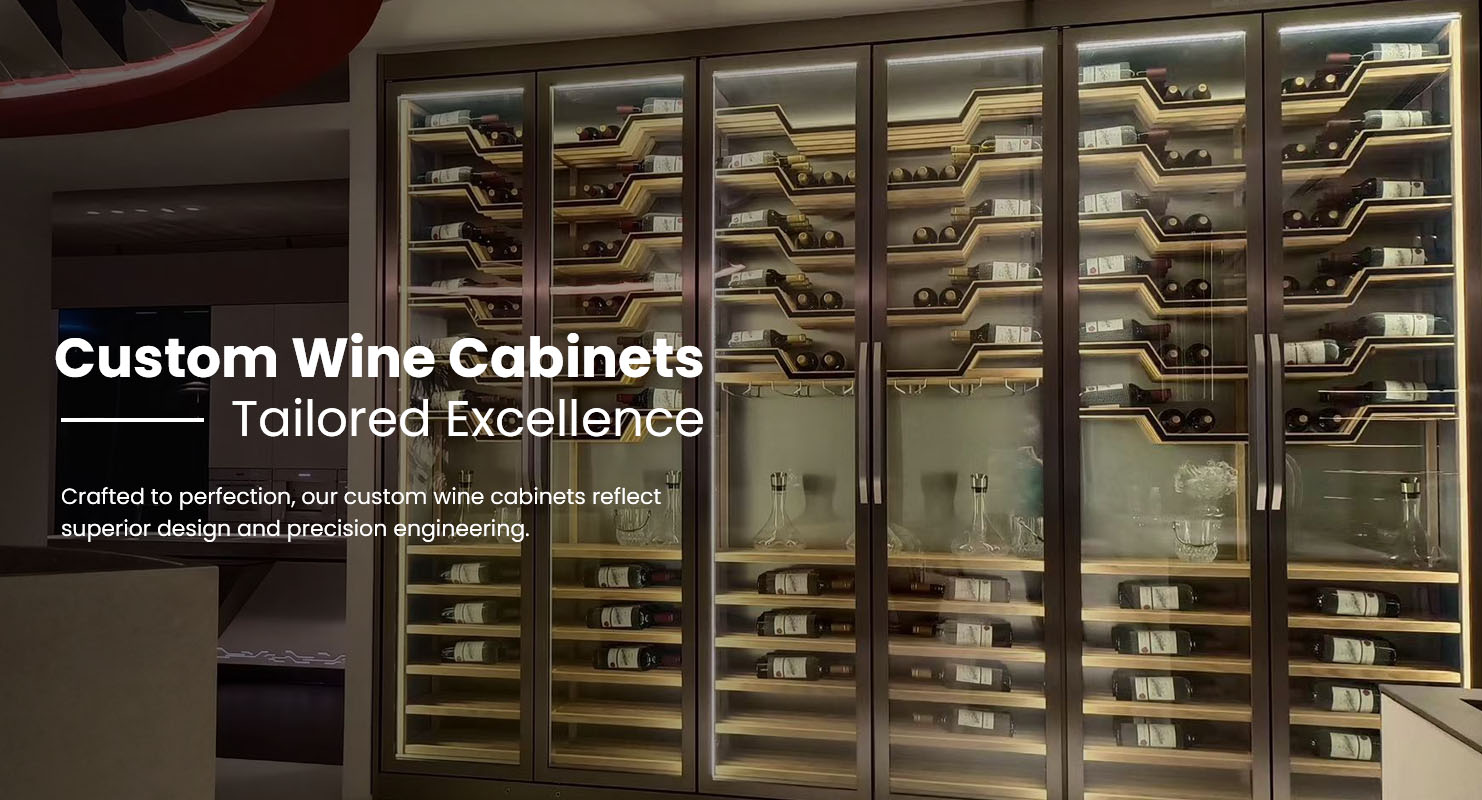What'S The Difference Between A Wine Cooler And A Fridge
At first glance, a Wine Cooler and a refrigerator may appear similar — both keep things cool and come in stainless-steel or glass-door designs.
However, their purpose, temperature range, humidity control, and vibration performance are entirely different.
While a refrigerator is built for food storage, a WINTON Wine Cooler is specifically engineered for preserving and serving wine under professional cellar conditions.
1. Designed for Different Purposes
The most fundamental difference lies in what they are made to protect.
A refrigerator is intended to store food and beverages at very low temperatures (typically 0–5 °C / 32–41 °F), preventing bacterial growth.
A wine cooler, on the other hand, maintains a stable, moderate climate between 5–18 °C (41–65 °F) — the ideal range for wine preservation and serving.
Food fridges are too cold and too dry for wine; over time, they can damage corks, disturb aromas, and alter the chemical balance of the liquid.
A wine cooler ensures wine matures slowly and evenly, just as it would in a traditional cellar.
2. Temperature Range and Stability
Temperature consistency is essential for maintaining wine quality.
Wine needs gentle, gradual cooling — not sharp temperature drops like a refrigerator provides.
| Feature | Wine Cooler | Refrigerator |
|---|---|---|
| Temperature Range | 5 °C – 18 °C (41 °F – 65 °F) | 0 °C – 5 °C (32 °F – 41 °F) |
| Purpose | Preserve and serve wine | Preserve perishable food |
| Control Type | Digital thermostat with ±1 °C precision | Broad thermostat range |
| Temperature Stability | Constant and gentle | Frequent compressor cycling |
All WINTON wine coolers use intelligent thermostats that maintain steady internal temperatures, ensuring every bottle is protected from heat fluctuations that could spoil the wine.
3. Humidity Control and Cork Preservation
Humidity plays a vital role in wine storage.
If the air inside the cabinet is too dry, corks shrink and let oxygen enter the bottle, leading to oxidation.
If it’s too humid, mold may form.
Refrigerators are designed for low humidity — typically 30–40 %, to keep food dry.
Wine coolers maintain 50–75 % humidity, the perfect balance to keep corks moist and airtight.
WINTON wine coolers achieve this through sealed doors, insulated interiors, and balanced airflow systems, replicating the conditions of a professional wine cellar.
4. Vibration and Noise Levels
Even small vibrations can disturb wine sediment and alter its taste, especially in aged red wines.
Standard refrigerators produce continuous vibrations due to their powerful compressors and defrost cycles.
WINTON wine coolers, in contrast, feature:
Low-vibration compressors mounted on rubber bases,
Anti-shock shelving, and
Silent fan systems operating below 42 dB.
This quiet, stable environment allows wine to mature naturally without disruption.
5. Air Circulation and Odor Protection
A refrigerator’s cooling system often circulates cold, dry air rapidly — and may transfer food odors between compartments.
Wine coolers use gentle fan-based air circulation to keep the temperature uniform without drying the corks or transferring smells.
WINTON’s air-flow design ensures that every bottle receives consistent cooling and clean, odor-free air, maintaining the true character of the wine.
6. Interior Design and Shelving
Wine bottles are shaped differently from food containers, so wine coolers are designed with special racks that hold bottles horizontally.
This position keeps corks moist and prevents oxygen exposure.
| Component | Wine Cooler | Refrigerator |
|---|---|---|
| Shelving Material | Beechwood or steel racks | Plastic or glass shelves |
| Bottle Orientation | Horizontal | Upright |
| Lighting | Soft LED (no heat) | Bright fluorescent |
| Door Glass | UV-filtered tempered glass | Standard transparent or opaque door |
Every WINTON model integrates wooden shelves, soft LED lighting, and UV-protected glass, turning wine storage into an elegant display while maintaining functionality.
7. Energy Efficiency and Environmental Performance
Wine coolers generally consume less energy because they operate at moderate temperatures and run intermittently.
WINTON uses eco-friendly refrigerants (R600a) and precision temperature sensors, reducing energy waste while maintaining professional-grade cooling.
Standard refrigerators, by contrast, are designed for intensive 24-hour cooling at lower temperatures, leading to higher power usage.
8. Installation and Aesthetic Integration
Wine coolers are available in both built-in and freestanding designs:
Built-in models feature front ventilation, allowing seamless integration under kitchen counters or bar areas.
Freestanding units use rear ventilation, ideal for open spaces like dining rooms or offices.
WINTON offers both options, each with a refined appearance that enhances any modern interior.
Refrigerators are typically bulkier, less decorative, and designed for kitchens rather than display areas.
9. Practical Use Case Differences
| Scenario | Best Choice | Reason |
|---|---|---|
| Daily cooking or grocery storage | Refrigerator | Lower temperature prevents food spoilage |
| Wine preservation and serving | Wine cooler | Maintains stable temperature and humidity |
| Restaurant or bar display | Wine cooler | Elegant presentation and quiet operation |
| Long-term aging of fine wine | Wine cooler | Controlled environment for natural maturation |
For anyone serious about wine, a dedicated cooler is an investment in quality and experience.
10. Key Takeaways
Temperature: Wine coolers operate between 5–18 °C; refrigerators are much colder.
Humidity: Wine coolers preserve corks with 50–75 % humidity; fridges dry them out.
Vibration: WINTON coolers minimize vibration, allowing proper aging.
Lighting: LED and UV-filtered glass prevent light damage.
Purpose: Fridges store food; wine coolers preserve wine flavor and balance.
Conclusion
A wine cooler is not simply a smaller refrigerator — it’s a specialized appliance designed to replicate ideal cellar conditions.
It provides the precise temperature, humidity, and stability that wine requires to mature gracefully.
WINTON Wine Cooler integrates advanced cooling systems, humidity control, UV-shielded glass, and quiet operation to ensure that every bottle retains its finest aroma and taste.
For homeowners, restaurants, and wine collectors, a WINTON wine cooler represents more than storage — it’s a guarantee of perfect preservation and refined presentation.
Visit www.wintonwinecooler.com to explore how WINTON’s professional wine storage technology can elevate your wine experience.
Previous: Why Does My Wine Cooler Freeze Up


